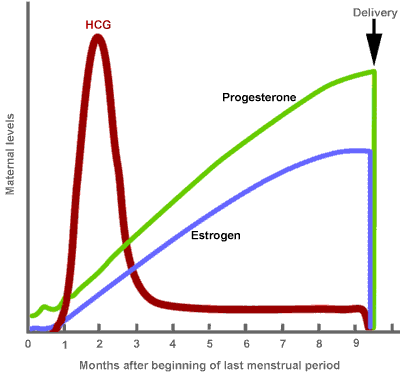Wondering when pregnancy symptoms begin? Discover the timeline of early signs of pregnancy, what to expect, and how to identify them in our comprehensive guide.
Pregnancy is a life-changing event filled with excitement, anticipation, and sometimes anxiety. For many women, the first step in this journey is recognizing early pregnancy symptoms. Understanding when these symptoms begin and how they manifest can help you determine whether you might be expecting. This article aims to provide comprehensive insights into the timeline of early pregnancy symptoms, including what signs to look for, how to confirm a pregnancy, and when to consult a healthcare provider.
Understanding Early Pregnancy Symptoms
What Are Early Pregnancy Symptoms?
Early pregnancy symptoms are physical and emotional changes that occur as a result of hormonal shifts following conception. These symptoms can vary widely among women, making it important to understand what to expect. Common symptoms include:
- Missed Period: Often the first and most significant indicator.
- Nausea and Vomiting: Known as morning sickness, it can occur at any time.
- Breast Changes: Tenderness, swelling, or darkening of the nipples.
- Fatigue: Increased tiredness due to hormonal changes.
- Frequent Urination: A common occurrence as the body adjusts.
For a detailed look at these symptoms, visit Common Signs of Pregnancy.
Hormonal Changes in Early Pregnancy

The hormonal landscape changes dramatically during early pregnancy, primarily due to increased levels of:
- Human Chorionic Gonadotropin (hCG): This hormone supports the pregnancy and is detected in pregnancy tests.
- Progesterone: Prepares the uterus for the fertilized egg and helps maintain the pregnancy.
- Estrogen: Increases blood flow and prepares breast tissue for breastfeeding.
These hormonal shifts can lead to a variety of symptoms that signal pregnancy.
When Do These Symptoms Begin?
The Timeline of Early Symptoms
Early pregnancy symptoms can appear as soon as a few days after conception. Here’s a detailed timeline:
- Implantation (6-12 days post-conception): The embryo implants into the uterine lining, potentially causing light spotting and cramping known as implantation bleeding.
- One Week Post-Missed Period: Many women begin noticing symptoms such as nausea, breast tenderness, and fatigue. This is typically when a home pregnancy test can yield an accurate result.
- 4-6 Weeks Pregnant: Hormonal changes intensify, leading to increased nausea, frequent urination, and emotional fluctuations.
- 8-10 Weeks: Symptoms may peak around this time as the body continues adjusting to pregnancy hormones.
Individual Variability in Symptom Onset
Not every woman will experience symptoms at the same time. Factors influencing this variability include:
- Hormonal Levels: Each woman’s hormonal response differs, affecting symptom onset.
- Health and Lifestyle: Stress, diet, and overall health impact how symptoms are experienced.
- Previous Pregnancies: Women who have been pregnant before may recognize symptoms earlier.
Identifying the Signs
Early Detection Methods
To confirm a suspected pregnancy, consider:
- Home Pregnancy Tests: These tests can often detect pregnancy a few days after a missed period, depending on sensitivity.
- Blood Tests: Conducted by healthcare providers, blood tests can detect pregnancy hormones earlier than home tests.
- Monitoring Symptoms: Keeping track of symptoms can provide insight into pregnancy status.
For more information on how to confirm pregnancy, check out How to Confirm Pregnancy.
Common Early Pregnancy Symptoms in Detail
Missed Period
A missed period is often the first sign that prompts women to consider pregnancy. This section will delve into:
- Understanding Menstrual Cycles: How they work and what constitutes a missed period.
- Variability in Cycle Length: How cycle length can affect the perception of a missed period.
Nausea and Vomiting
This section will cover:
- What Causes Morning Sickness?: Hormonal changes and their effects.
- Tips for Managing Nausea: Dietary changes and lifestyle adjustments.
For strategies on managing morning sickness, refer to Managing Morning Sickness.
Breast Changes
Women often notice changes in their breasts early in pregnancy. This section will explore:
- Common Changes: Tenderness, swelling, and nipple darkening.
- Importance of Breast Changes: Preparing for breastfeeding.
Fatigue
Fatigue can be overwhelming in early pregnancy. This section will address:
- Causes of Fatigue: Hormonal shifts and increased metabolic demands.
- Coping Strategies: How to manage tiredness.
For tips on managing fatigue, visit Managing Fatigue During Pregnancy.
Frequent Urination
As pregnancy progresses, frequent urination can become common. This section will explain:
- Why It Happens: Hormonal influences and increased blood volume.
- Tips for Managing Symptoms: Hydration and bathroom habits.
For more insights on frequent urination, check out Understanding Frequent Urination.
Other Symptoms and Considerations
Emotional Changes
Discuss the emotional rollercoaster many women experience during early pregnancy:
- Mood Swings: Hormonal fluctuations and their impact.
- Anxiety and Excitement: Managing feelings about pregnancy.
For strategies to cope with emotional changes, see Managing Emotions in Early Pregnancy.
Uncommon Symptoms
Some symptoms may not be widely recognized. This section will explore:
- Food Cravings or Aversions: Changes in taste and appetite.
- Headaches and Dizziness: Potential causes during early pregnancy.
Other Possible Explanations for Symptoms
Confusing Signs
Many early pregnancy symptoms can be mistaken for other conditions. This section will cover:
- Premenstrual Symptoms: Similarities between PMS and early pregnancy.
- Hormonal Imbalances: How they can mimic pregnancy symptoms.
- Health Conditions: Discuss conditions that may cause similar symptoms.
For a deeper dive into PMS and pregnancy similarities, visit PMS vs. Early Pregnancy Symptoms.
When to Consult a Healthcare Provider
Seeking Medical Advice
If you suspect you are pregnant based on early symptoms, consider consulting a healthcare provider. Important reasons include:
- Persistent nausea or vomiting.
- Severe abdominal pain or cramping.
- Other unusual symptoms.
Conclusion
Understanding when pregnancy symptoms start and what signs to look for can help in recognizing pregnancy early. If you suspect you may be pregnant, monitor your symptoms and consult with a healthcare professional for confirmation and next steps. Early detection and appropriate care can help ensure a healthy pregnancy journey.
Further Reading and Resources
For additional insights into pregnancy symptoms and health, explore these resources:
